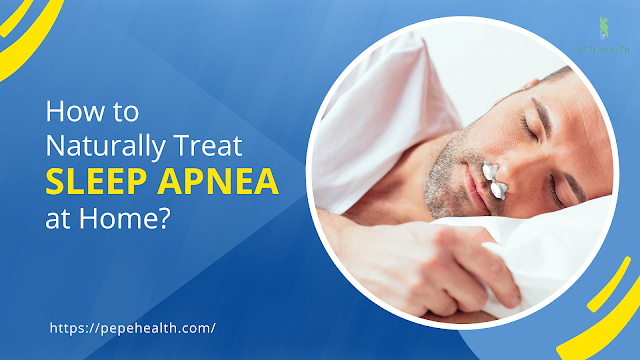9 Methods to Relieve Headaches Without Medication
someone has a headaterm headache, it might be annoying because headaches are a relatively common type of discomfort. There are numerous natural remedies that people can try to relieve headaches rather than turning to over-the-counter drugs.
In this post, we examine some at-home and all-natural
headache treatments. Many of these treatments are available immediately away,
and some of them may be able to help people avoid headaches in the future.
1.Massage Treatment
Massages are extremely soothing while appearing to be a luxury. Headaches can occasionally be brought on by tension in the upper body brought on by muscle strain from bad posture or strenuous exercise.
Massage therapy may be able to lessen headatermheadache-causing muscle tension as well as chronic pain.
Take the time to learn about different massage techniques (Swedish, deep tissue, shiatsu, etc.) and seek trustworthy recommendations for a local practitioner who can efficiently treat your particular pain locations.
2.Cold-And-Hot
Applications
Compresses that are hot or cold can provide migrain relief for headaches caused by muscle tension. To protect your skin from the cold, put the ice in a plastic bag that is wrapped with a thin cloth. Put the ice pack wherever the pain is the worst—for example, on your cheeks or forehead.
Only make sure to use the cold pack for no longer than 10 minutes at a time.
You can either buy a heat pack at most drugstores or build your own with uncooked rice for the hot part. Approximately two-thirds of a small pillowcase or piece of fabric should be filled with uncooked rice. Close the open end with sewing or a tie. Microwave the rice for one minute as necessary. For hot relief, apply on your forehead or the back of your neck.
3. Enjoy Soothing TeasHerbal tea is a wonderful method to unwind at night because of its warmth and comfort. The same calming characteristics may also have pain-relieving properties. Before consuming these teas, speak with a doctor because herbs can interfere with certain diseases and medications. Chamomile, ginger, and dandelion are all favourites for relaxation.
4. Aroma Therapy
Aromatherapy is the study of how particular scents can cause the brain to react in a way that is beneficial and even restorative.
Some scents have been said to relieve headaches and cut down on their frequency. These include lavender oil, eucalyptus, and peppermint extract. They are easily accessible online or at a number of nearby health food stores.
5. Breathing Exercises
Daily breathing exercise techniques that help you focus your thoughts and relax your muscles can occasionally assist cure tension-related headaches.
Find a peaceful area with a comfy chair in your house, business, or any place where you won't be interrupted to get started. After then, breathe slowly and rhythmically for five seconds on each side. Your muscle tightness decreases as you unwind.
You can practise progressive relaxation by concentrating on each of your body's main muscle groups.
6. Use an elimination diet
According to studies, some people's food intolerances may cause headaches. You can think about trying an elimination diet, which eliminates the foods most closely associated with your headache symptoms, to see whether a particular food is causing your recurrent headaches. Among the most popular dietary triggers among migraine sufferers are aged cheeses, alcohol, chocolate, citrus fruits, and coffee.
A 2016 research of 50 migraineurs found that removing foods from the diet that cause migraines dramatically decreased the frequency, length, and intensity of migraine attacks.
7. Get enough sleep
Lack of sleep can have a negative impact on your health in many ways, and for some people, it can even result in headaches. In fact, studies have found a link between increased headache frequency and severity and poor sleep quality and insomnia.
Morning headaches are linked to sleep apnea, a medical disorder in which breathing repeatedly stops and starts again while you're asleep, whereas tension headache sufferers are more likely to experience sleeplessness and more severe headaches.
However, it has also been demonstrated that obtaining too much sleep can cause headaches. For individuals seeking natural headache prevention, getting the proper amount of sleep is crucial. Aim for the "sweet spot" of 7-9 hours of sleep per night for the most effects.
8. Drink water
You might have a headaterm headache as a result of dehydration. Dehydration is a common cause of headaches, as evidenced by studies. Dehydration can also make you irritable and decrease your ability to concentrate, exacerbating your symptoms.
Fortunately, evidence indicates that increasing your water intake may help some people experience fewer headaches and have shorter, milder headaches. Concentrate on consuming enough water throughout the day and water-rich meals like fruits and vegetables to help prevent headaches caused by dehydration.
9. Avoid strong
smells
Some people can get headaches from strong odours like those from cleaning supplies and perfumes. Strong smells, particularly perfumes, frequently cause headaches, according to a study of 400 persons who either had headaterm migraines or tension headaches.
Osmophobia, or an extreme sensitivity to smells, is a typical symptom in those who suffer from recurrent headaches. Avoiding perfumes, cigarette smoke, and strongly scented foods may help reduce your risk of developing a headaterm migraine if you suspect you may be sensitive to odours.












Comments
Post a Comment